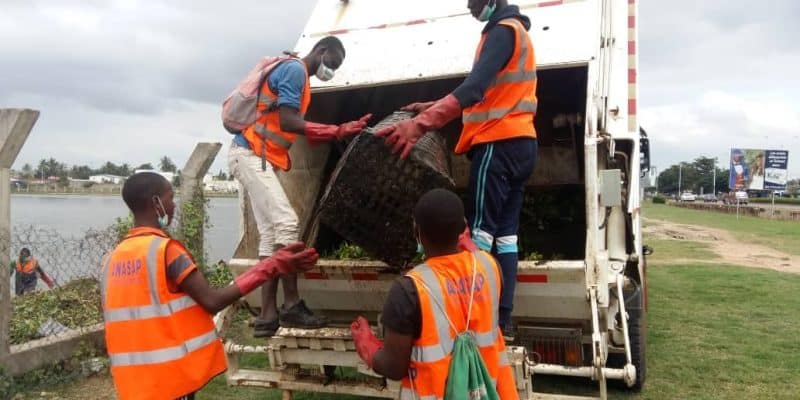As part of its project "Togo without plastic waste", the National Agency for Sanitation and Public Health (ANASAP) is launching the "Citizen's Holiday Jobs" initiative in the northern town of Dapaong. The aim is to encourage young people to preserve the environment.
In Togo, the National Agency for Sanitation and Public Health (ANASAP) is launching the “Citizens’ Holiday Jobs” project in the town of Dapaong, located 650 km from Togo. This initiative, which will last until the end of August, mobilizes a hundred young people to clean public roads, cleaning gutters, as well as collecting plastic waste that litter the streets of several municipalities such as Tône 1.
“The work will be done five days a week and the young people will be motivated at the rate of 2000 CFA francs (about 3 euros) per session. This will allow them to have the means to buy supplies at the beginning of the school year in order to relieve their parents. Also, there will be awareness sessions on the importance of maintaining a clean environment, in order to make these learners the torchbearers of cleanliness,” says ANASAP.
Strengthening access to sanitation services
The agency has offered local authorities protection and cleaning materials, including gloves, mufflers, iron rakes, brooms, 25kg and 100kg bags, as well as wheelbarrows. This initiative is part of the “Togo without plastic waste” project.
In the process, the West African country has joined the West African Coastal Area Resilience Investment Project (WACA-ResiP), supported by the World Bank and the United Nations (UN) Global Environment Facility (GEF).
Read also-TOGO: AFD and KfW lend €20 million to improve waste management in Lomé
In 2020, the Togolese government released 450 million CFA francs (more than 680,000 euros) for the implementation of this project in the coastal town of Aného. Eventually, the investments will allow 2,300 households to have access to a waste collection and recycling service (50% of the waste collected), as well as the construction of ecological toilets for 400 households.
Benoit-Ivan Wansi





